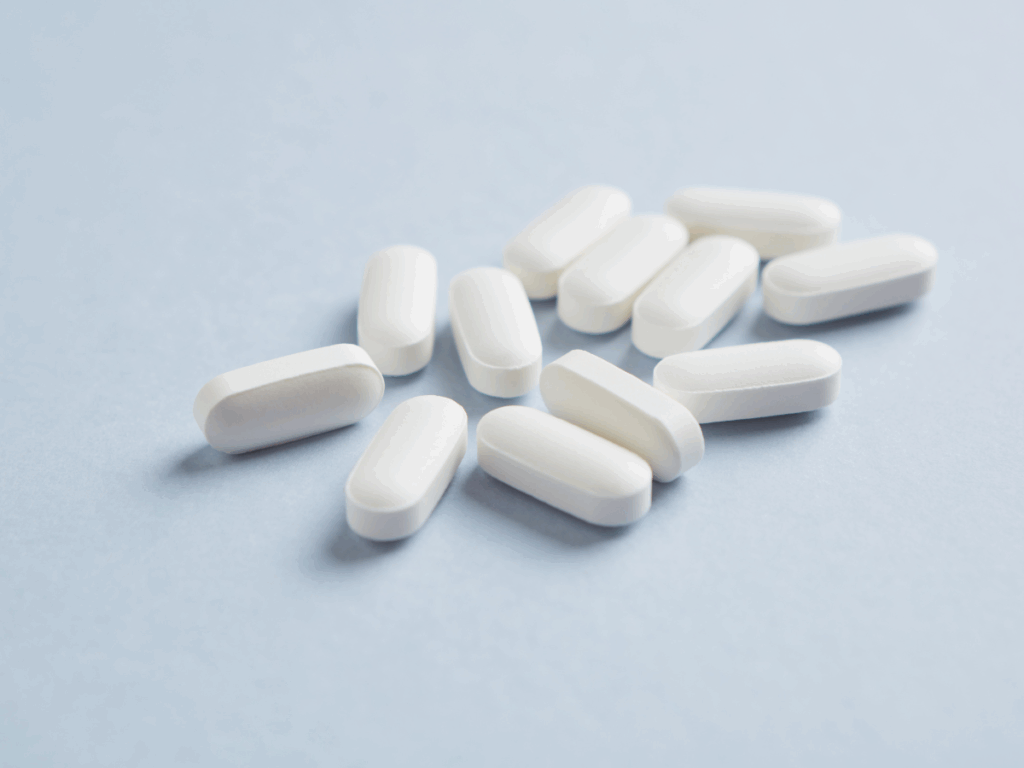
The Ongoing Impact of Prescription Opioids
Prescription opioids continue to play a significant role in the national overdose crisis. While illicit fentanyl dominates headlines, medications originally designed for legitimate pain relief, like Percocet, still contribute to rising rates of misuse, dependence, and fatal overdose. CDC data show that deaths involving prescription opioids increased again between 2022 and 2023, a sobering reminder of the enduring public health implications of these medications.
At Legacy Healing Center, we’ve seen the toll firsthand. Our clinical teams support individuals and families affected by prescription opioid misuse, offering guidance, medical expertise, and a path toward lasting recovery.
What Is Percocet?
Percocet is a prescription pain medication that combines two active ingredients: oxycodone, a potent opioid that binds to μ-opioid receptors to block pain, and acetaminophen, a common non-opioid analgesic. Together, they offer short-term relief from moderate to severe pain. However, oxycodone’s fast-acting influence on the brain’s reward system can quickly trigger euphoria, escalating tolerance, and powerful cravings, even in individuals who began using the drug as directed.
Though initially developed as a safer alternative to standalone opioids, Percocet remains a Schedule II controlled substance due to its high potential for misuse and dependency. Today, an estimated 11 million Americans misuse oxycodone-based medications like Percocet each year, often unaware of the drug’s full physiological impact until dependence has taken hold.
Recognizing Percocet Use Disorder and Addiction
Countless people begin Percocet on a legitimate prescription after surgery or injury, only to find themselves escalating dosage or “clock-watching” for the next pill. Classic red flags include:
- Behavioral changes — doctor-shopping, forging scripts, borrowing pills, or withdrawing socially.
- Physical signs — constipation, pinpoint pupils, nodding off, or slowed breathing.
- Cognitive/psychological cues — poor concentration, irritability between doses, or using despite harm.
When two or more of the DSM-5 criteria appear within 12 months, clinicians diagnose an Opioid Use Disorder (OUD), ranging from mild to severe.
What Makes Percocet Addictive?
Percocet’s addictive punch stems from oxycodone’s high affinity for the brain’s μ-opioid receptors, flooding synapses with dopamine and teaching the brain to equate pills with survival rewards like food and intimacy.
Biological Factors
- Genetic susceptibility — impulsivity and novelty-seeking temperaments, both heritable traits, raise OUD risk.
- Neuroadaptation — repeated doses down-regulate natural endorphin production, so ordinary pleasures feel flat while drug cues gain salience.
- Sex differences — epidemiologic studies show women progress from first use to dependence faster, possibly due to hormonal modulation of pain pathways and reward circuitry.
Psychological Factors
- Trauma and co-occurring mood disorders — individuals with PTSD, anxiety, or depression may self-medicate emotional pain.
- Learned associations — using Percocet to unwind after work can quickly encode relief as a conditioned response.
- Environmental modeling — living with others who misuse prescription opioids normalizes the behavior.
How Does Percocet Affect the Brain?
Even a single therapeutic dose dampens pain signals, but misuse rewires reward, memory, and stress circuits.
Short- & Long-Term Effects on the Brain
- Acute: euphoria, sedation, suppressed respiratory drive, impaired judgment.
- Chronic: tolerance, hyperalgesia (heightened pain sensitivity), depressive symptoms, and structural changes linked to oxygen deprivation during respiratory depression.
- Cognitive decline: prolonged non-medical use is associated with attention deficits and memory impairment.
How Does Percocet Affect the Body?
Beyond the central nervous system, every organ system feels Percocet’s reach.
Short- & Long-Term Effects on the Body
- Short-term: constipation, slowed GI motility, itching, nausea, and dose-dependent respiration slowing.
- Long-term: endocrine disruption (lowered testosterone, menstrual changes), immune suppression, and—via the acetaminophen component—progressive liver injury that can culminate in acute failure.
Overdose Risk
Risk spikes when users:
- Combine Percocet with alcohol or benzodiazepines, multiplying respiratory-depression effects.
- Exceed 4,000 mg acetaminophen in 24 hours, a threshold the FDA now mandates be clearly labeled.
- Crush or inject tablets, sending uncontrolled oxycodone levels directly into the bloodstream.
Overdose warning signs include shallow breathing, blue lips, pinpoint pupils, vomiting, and loss of consciousness. Naloxone (Narcan®) can reverse opioid toxicity but cannot mitigate acetaminophen-induced liver damage, so emergency care is essential.
Percocet Withdrawal Symptoms
Stopping Percocet abruptly can feel like the worst flu imaginable. Symptoms typically emerge 5–8 hours after the last dose, crest within 72 hours, and subside over 7–14 days, though sleep disturbance and cravings may linger for weeks.
Early phase (Day 1–3)
- Anxiety, yawning, muscle aches
- Runny nose, sweating, watery eyes
Peak phase (Day 3–5)
- Abdominal cramping, diarrhea
- Gooseflesh, dilated pupils, tremors
Late phase (Day 6–14)
- Dysphoria, insomnia, fatigue
- Drug dreams and psychological cravings
Medically supervised detox eases the process with tapered dosing, buprenorphine or methadone induction, symptomatic medications, and 24-hour monitoring.
Treatment Programs for Percocet Addiction
Legacy Healing Center offers a full continuum of care designed to move clients from acute withdrawal through resilient, long-term recovery:
Medical Detox (3–10 days)
- 24/7 nursing and physician oversight
- FDA-approved medications to control cravings and stabilize vitals
- Residential Inpatient (30–90 days)
- Evidence-based therapies: Cognitive-Behavioral Therapy (CBT), EMDR for trauma, and Motivational Interviewing.
- Daily holistic activities—yoga, nutritional counseling, recreational therapy—that retrain the brain’s reward system without opioids.
- Partial Hospitalization & Intensive Outpatient
- Step-down levels of care allow clients to practice relapse-prevention skills while still receiving 15–25 clinical hours per week.
- Medication-Assisted Treatment (MAT)
- Buprenorphine or extended-release naltrexone for individuals who benefit from pharmacotherapy, administered under strict medical protocols.
- Family & Alumni Programming
- Weekly family sessions rebuild trust and communication.
- Lifetime alumni community, online and on-site in FL, CA, NJ, and OH, keeps recovery networks strong.
- Aftercare & Case Management
- Individualized discharge plans connect graduates to sober living, vocational training, and local recovery fellowships across the country.
Why Choose Legacy Healing Center?
- Nationwide Reach, Local Feel – Whether you prefer sunny South Florida, tranquil Central Ohio, Silicon-Beach California, or coastal New Jersey, our centers provide consistent, compassionate care.
- Accredited, Multidisciplinary Staff – Board-certified physicians, licensed therapists, and peer support specialists (many in long-term recovery themselves) collaborate on every treatment plan.
- Evidence & Empathy – We blend the latest clinical research with genuine human connection, because beating Percocet addiction requires both science and soul.
Take the Next Step
Percocet may start as a pain solution, but untreated addiction only deepens hurt—for individuals, families, and communities. If you recognize the signs in yourself or someone you love, call Legacy Healing Center today. Recovery is possible, treatment is available nationwide, and your next chapter can begin now.
Immediate Help and Support
Whether you’re navigating concerns about Percocet use or seeking guidance for someone close to you, compassionate help is always within reach.
Legacy Healing Center: Call (888) 534‑2295 to speak confidentially with a specialist in Percocet and opioid addiction. Our team is available 24/7 to listen without judgment and help you explore your next steps with care and clarity.
SAMHSA National Helpline: Dial 1‑800‑662‑HELP (4357) for free, confidential support and treatment referrals—available any time, day or night.
988 Suicide & Crisis Lifeline: Dial 988 for immediate assistance in a mental health or substance-related emergency.
You are not alone. The path forward begins with connection; support is only one call away.


 Written By:
Written By: Edited By:
Edited By: Clinically Reviewed By:
Clinically Reviewed By: 




 Verify Insurance
Verify Insurance